
Alkem Laboratories: From pharma distribution to a Rs 11,600 crore pharma major
As Alkem Laboratories turns 50 years, Forbes India traces its journey from its humble beginnings as a pharma distribution company to a Rs 11,599 crore pharma major
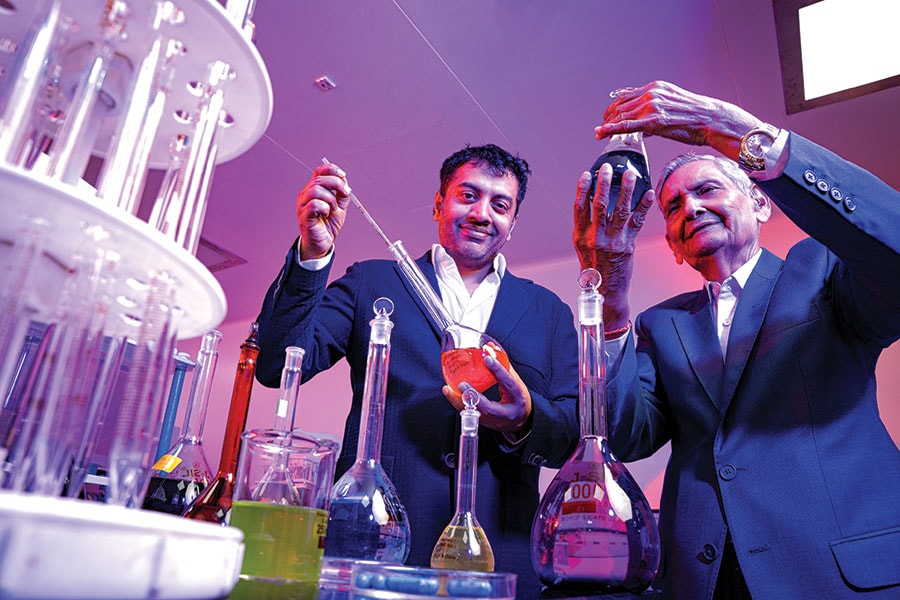 Sandeep Singh (left), managing director, with Basudeo Narayan Singh, co-founder & executive chairman of Alkem; Image: Mexy Xavier
Sandeep Singh (left), managing director, with Basudeo Narayan Singh, co-founder & executive chairman of Alkem; Image: Mexy Xavier
August 8, 1973, remains etched in Basudeo Narayan Singh’s memory. “It was the day we got our company registration licence in Mumbai, and Alkem Laboratories was born,” recalls the 83-year-old.
Samprada Singh, his cousin, was the entrepreneurial genius behind Alkem. As a commerce graduate, despite having an existing farming business, he tried his hand at multiple ventures, including selling umbrellas. Finally, he roped in his cousin, Basudeo—who was a professor then—to join him in starting a pharma distribution business in Patna, Bihar.
Once the business was flourishing by 1962, the Singh brothers saw potential in the sector and decided to set up their own pharma company. “With this agenda in mind, we moved to Mumbai with Rs5 lakh,” he tells Forbes India, in an exclusive interview on August 9, 2023—exactly 50 years after the company was founded—at Alkem’s Mumbai headquarters.
In FY23, the company had a market capitalisation of Rs44,500 crore, and a turnover of Rs11,599 crore. This year, the Singh family has also made it to the 2023 Forbes India’s 100 Richest list at Rank 47, with a net worth of $4.6 billion. With an impressive product mix for anti-infective and chronic therapies, Alkem Laboratories remains an India-focussed business; 70 percent of its revenue come
from India, 21 percent from the US market, and the remaining 8 percent from other international markets. In the last few years, Alkem’s trade generics play has been a growth driver too.




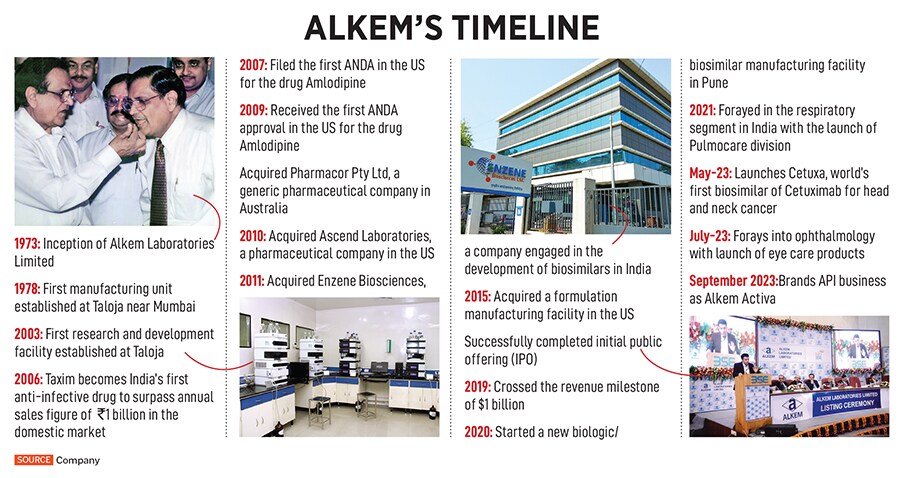
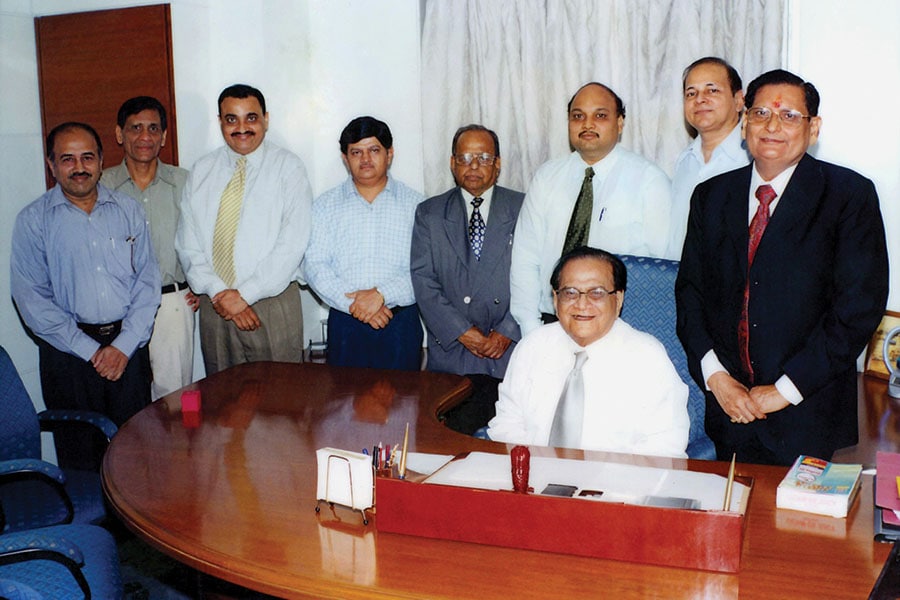

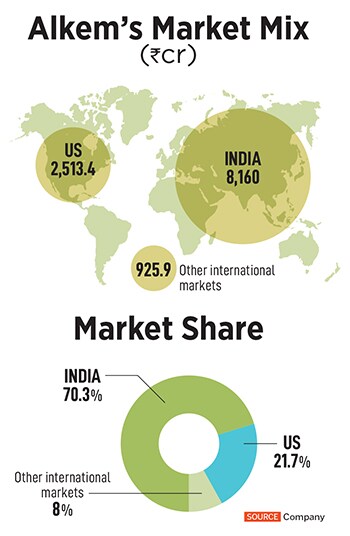 For the Indian market, the Department of Pharmaceuticals (DoP) amends the Drugs (Prices Control) Order to add drugs to the National List of Essential Medicines (NLEM). This was done most recently in 2022. “This will boost cost-effective, quality medicines and contribute towards reduction in out-of-pocket-expenditure on health care for citizens,” said Union Minister for Health and Family Welfare Mansukh Mandaviya, when he launched the NLEM 2022. However, Sandeep says, “that’s not really a free market for the drugs that are on that list”.
For the Indian market, the Department of Pharmaceuticals (DoP) amends the Drugs (Prices Control) Order to add drugs to the National List of Essential Medicines (NLEM). This was done most recently in 2022. “This will boost cost-effective, quality medicines and contribute towards reduction in out-of-pocket-expenditure on health care for citizens,” said Union Minister for Health and Family Welfare Mansukh Mandaviya, when he launched the NLEM 2022. However, Sandeep says, “that’s not really a free market for the drugs that are on that list”.

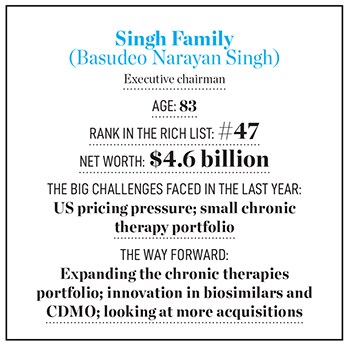 Alkem’s focus for the next few years will be investing in the space of biosimilars and contract development and manufacturing organisations (CDMO). In doing that though, Sandeep is clear, “I will not take the percentage of revenue dedicated for R&D to anything beyond 5.5 percent.”
Alkem’s focus for the next few years will be investing in the space of biosimilars and contract development and manufacturing organisations (CDMO). In doing that though, Sandeep is clear, “I will not take the percentage of revenue dedicated for R&D to anything beyond 5.5 percent.”




